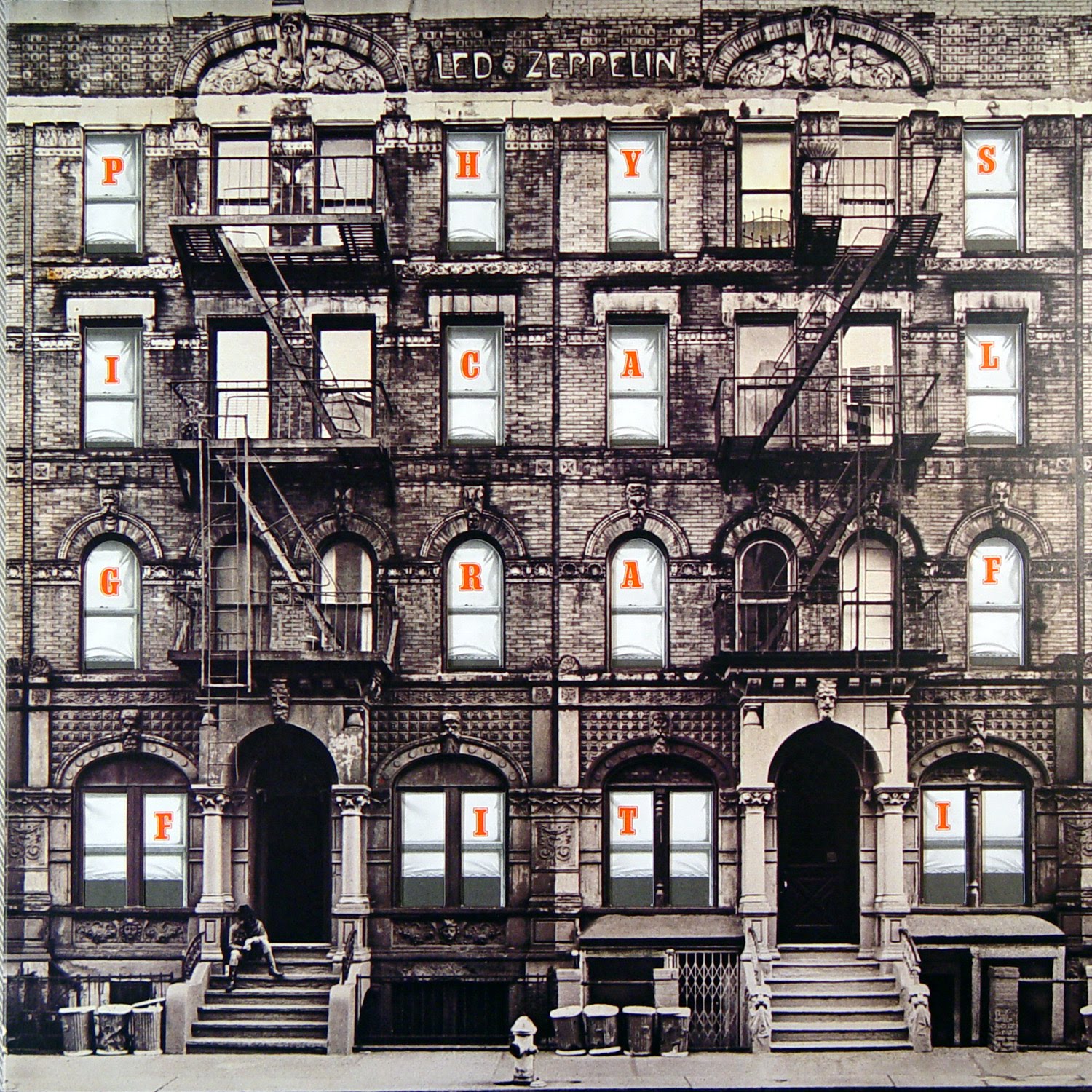Led Zeppelin’s ‘Physical Graffiti’ at 40: Soundgarden’s Kim Thayil Looks Back
On the anniversary of the 1975 LP, the guitarist reflects on his roots
February 24th, 2015 marks the 40th anniversary of Led Zeppelin’s sixth LP, Physical Graffiti. Soundgarden guitarist Kim Thayil, no stranger to heavy riffs, reflects on how the double album shaped his life.
I look back at Led Zeppelin’s Physical Graffiti as being a collection of cool fucking riffs that I loved, but they were the songs whose titles I couldn’t remember. There wasn’t anything about Physical Graffiti that I distinguished from the other albums when I was younger, other than the first album seemed a little bit more bluesy, the second one seemed more hard rock and the third album has some acoustics on it and is maybe a little bit more folky. It’s not like how Kiss’ Destroyer is very different from Rock and Roll Over or how Ramones’ End of the Century is distinctly different from the first [four]Â records. Lord knows, half the songs I was humming probably came from Physical Graffiti.

Led Zeppelin’s ‘Physical Graffiti’ artwork
The way I listened to Zeppelin when I was younger was I’d focus on the really cool guitar riff, over and over again, and then I’d get to the mellow breakdown part and then I’d move the needle over. That was kind of a weird way to listen to records. And of course, if you’d listened to the Sex Pistols, you didn’t have to listen to them like that; that sound was just kind of always up there.
I was 14 when Physical Graffiti came out. At that time, I would hear Zeppelin and Sabbath on the radio, and they were somewhat ubiquitous at any bongathon along with, like, Dark Side of the Moon. Back then, I didn’t have a lot of entertainment dollars that would go to records. Before I was done with high school, that money was going to picking up Ramones records. So Zeppelin was a thing that I would listen to, along with Pink Floyd and Sabbath, at friends’ houses because I couldn’t afford all the really cool records I wanted.
As a young guitarist, you’re kind of oriented towards things that are familiar to your abilities. A lot of young guitarists are into punk rock and hardcore because it’s a few chords and you play real fast. It fits, if you’re young. As you get better, you start listening to other stuff that might be more challenging and that’s where a band like Zeppelin fits in. The first Zeppelin song I learned how to play, I think when I was 17, was the main riff of “The Ocean” and then those little suspended guitar chords right-neatly afterwards. There were these other parts of the song that I couldn’t figure out and those were parts that I would move the turntable. I’d move the tone arm and skip the groove over to the next song.
Now the Soundgarden story gets strange. When we first got together, we were listening to a lot of post-punk and progressive hardcore, stuff like Bauhaus and Black Flag, after practice. Yet our friends are pointing out how our music has elements that remind them of Sabbath, Zeppelin and the Doors, and we started getting that a lot: “Zeppelin, Zeppelin, Zeppelin,” and we were like, OK, let’s check some of this out. We were all very acquainted with it individually, but collectively we weren’t sitting around the table listening them. So initially we would deny that influence.
Eventually, after practice we’d be like, “Let’s check out Led Zeppelin IV. Let’s listen to Houses of the Holy.” Like, “Yeah, I guess I can kind of see that a little bit.” It became very important to us, because of the comparison, so we would listen to it and start referencing it. Ultimately, we started to re-embrace the Zeppelin, Beatles, Sabbath and Pink Floyd. I think they were always there. At some point, we had to look back and say, “This has a lot to do with our upbringing.” It’s a weird story, but it may explain why, for a few years, we denied the Zeppelin-Sabbath influence.
One of my favorite Zeppelin songs that took years to grow on me was Physical Graffiti’s “Kashmir.” I think the reason why it took so long was there’s this amazing heaviness about it and this cool guitar riff, but then there’s these other elements that, when I was a young punk-rock guy, I saw as superfluous or unnecessary ornateness, sort of an art-nouveau thrills-and-stuff that perhaps I didn’t understand because I just wanted to get down to the power chords and play it really fast. “Kashmir” is an amazing song but I didn’t have the patience to listen to the orchestrations. My love for Zeppelin changed and grew over time.
“When the riff kicks in, it’s like, ‘Oh, my God!'”
Similarly, I remember when my friends would play “In the Light,” John Paul Jones’ synthesizer didn’t grab me as a kid. This is a band that has one of the greatest guitarists ever, and this part is going on for a bit. I was like, “This is Zeppelin?” “Yeah, this is Zeppelin.” And when the riff kicks in, it’s like, “Oh, my God.” Then it was obvious: Here’s this great guitar riff, and it’s heavy, and it’s Jimmy Page. Now if you were to put on “In the Light” and skip to the riff, I would say, “Whoa, wait, wait, wait, rewind, you have to hear the whole thing.” I have that understanding and love and appreciation now.
I’ve met Jimmy Page a few times. He came to our show when the Stooges were opening up for us in Hyde Park in London. We were talking about how great Iggy Pop was, and he said he had never seen them before, and I thought, “Wow, that’s strange because I’ve seen them twice and you’re older than me, and the Stooges were the late Sixties.” I figured they would’ve crossed paths, but he said he hadn’t seen them before, and he was really into them. Then he stayed to see us and watch our set. He also said hello to us when we opened for Black Sabbath last year. He was very friendly and was supportive and flattering to the band and our playing as, of course, I was to him. I know that I was being sincere and I assumed he was, too.








